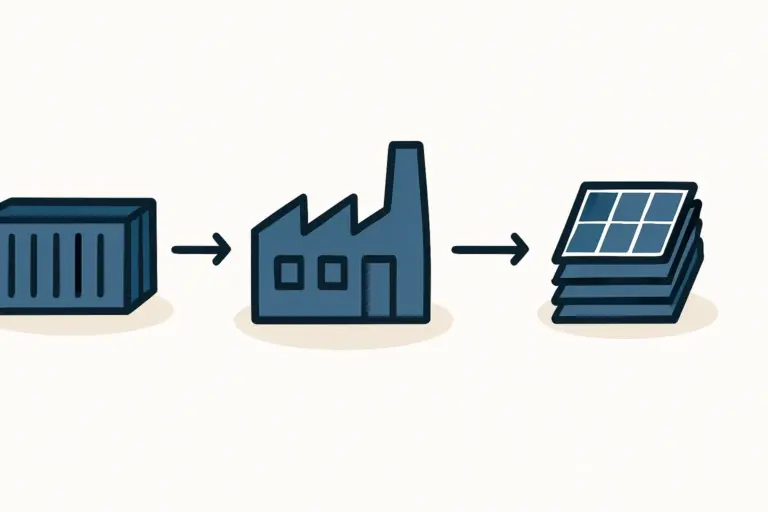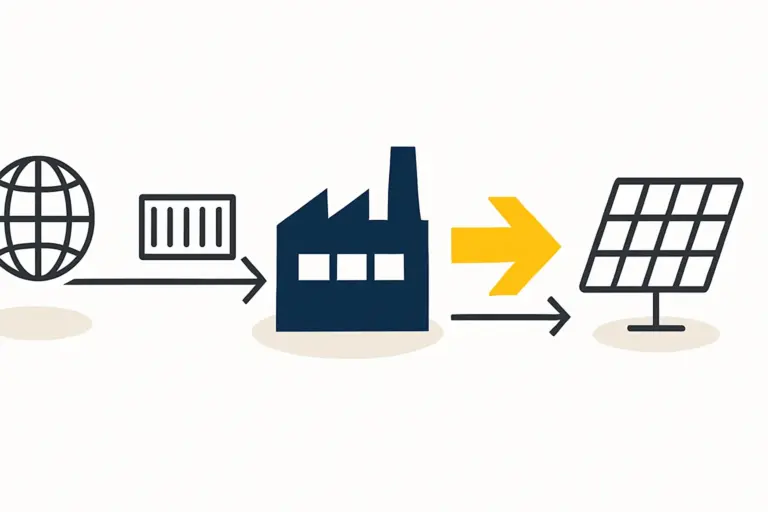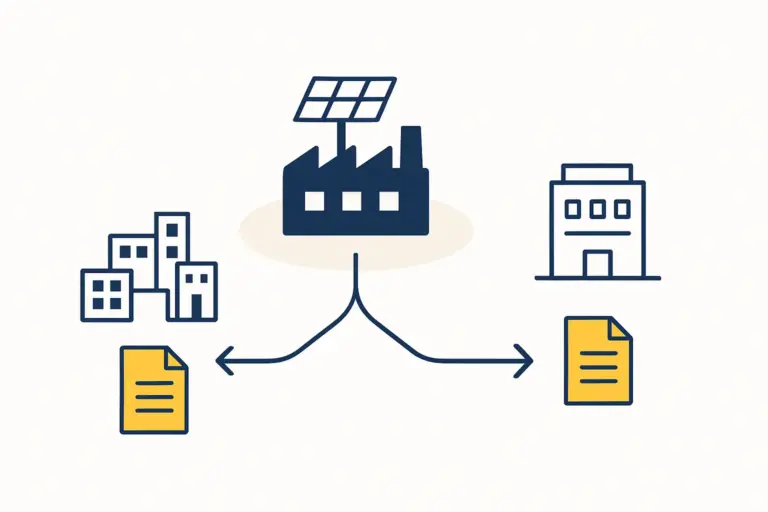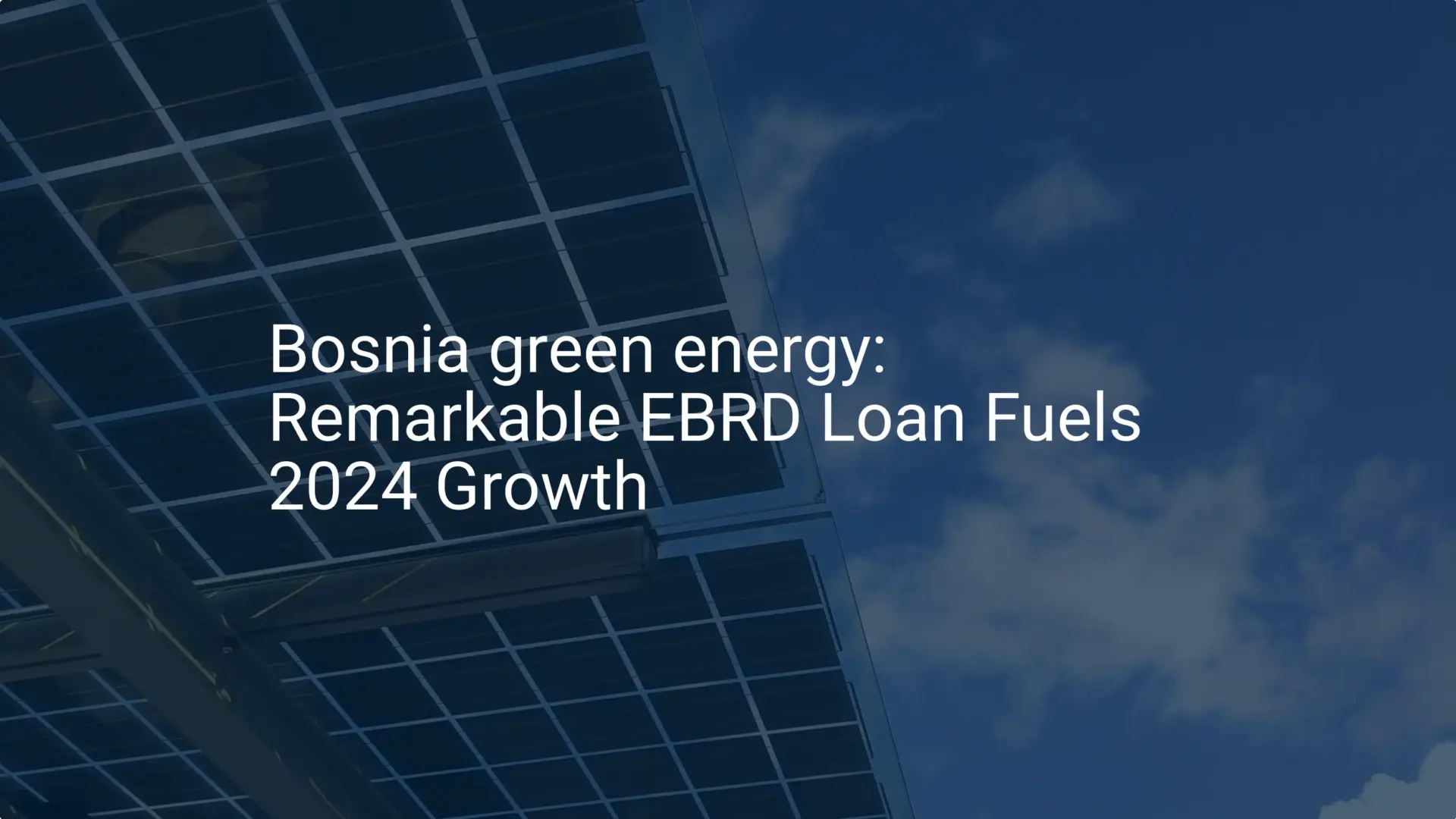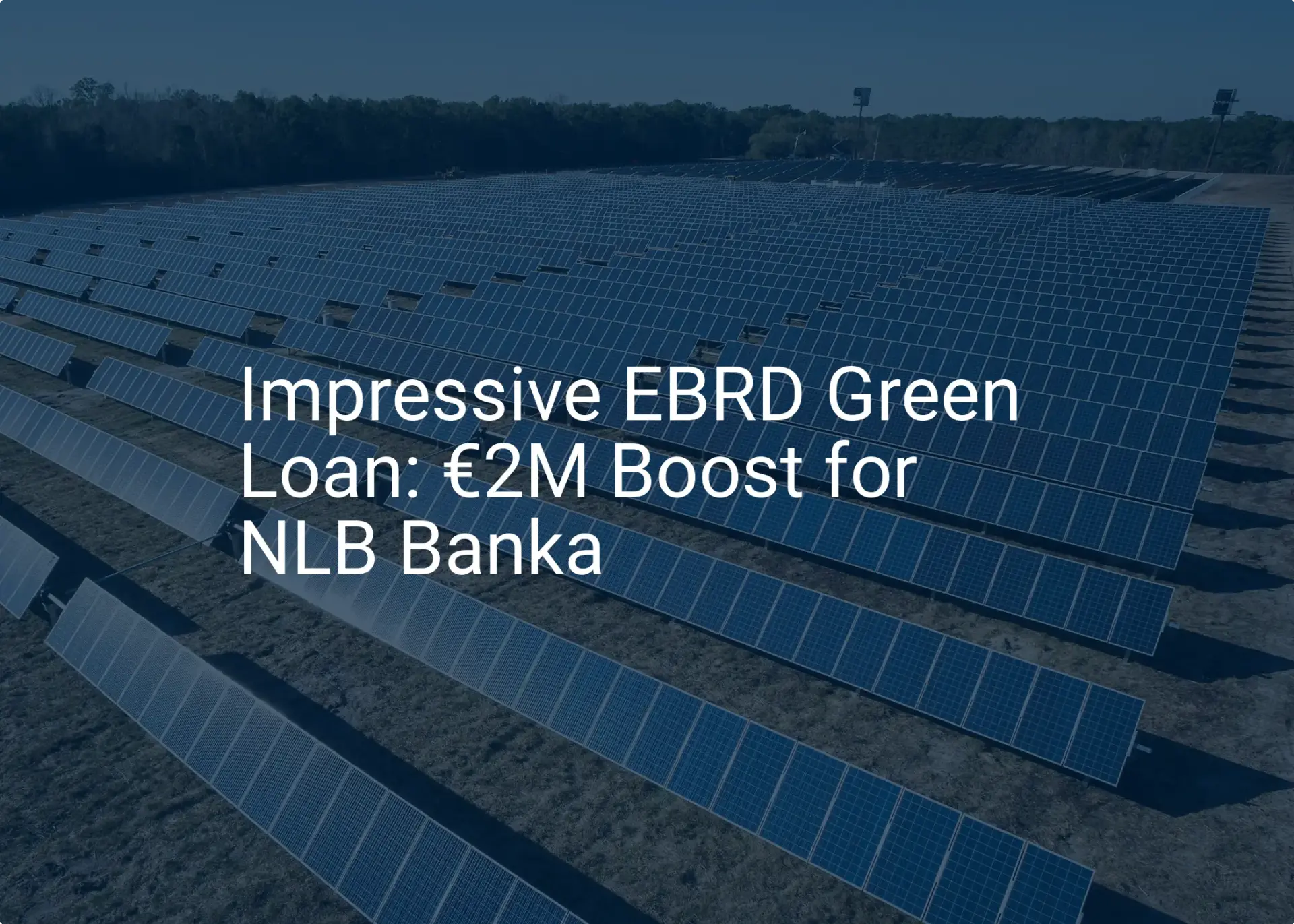An investor identifies a promising industrial plot: attractively priced, with ample space for expansion, and located in a region offering government incentives. On paper, it’s the perfect foundation for a new solar module factory.
Six months into operation, however, persistent power fluctuations damage sensitive lamination equipment, while seasonal road closures create crippling delays in shipping finished products. This scenario highlights a common pitfall for ventures that overlook two foundational pillars of industrial success: power grid reliability and logistics.
For any manufacturing enterprise, especially a high-tech operation like solar module production, the quality of local infrastructure is not a secondary detail—it is a primary driver of operational efficiency and profitability.
This guide provides a framework for evaluating these critical factors in the context of Bosnia and Herzegovina, helping potential investors move from a broad overview to a detailed, site-specific assessment.
Table of Contents
The Critical Role of Power Grid Reliability
A modern solar module factory is a sophisticated facility, relying on sensitive, automated machinery that must operate within precise tolerances. Equipment such as stringers, laminators, and testers is highly susceptible to electrical disturbances. An unstable power supply can lead to production halts, product defects, and even permanent damage to expensive machinery, posing a significant financial risk.
Understanding the National Context
Bosnia and Herzegovina has a distinctive energy profile. The country is a net exporter of electricity, generating a surplus primarily from a mix of hydropower and coal-fired plants. This national surplus, however, should not be mistaken for guaranteed stability at a local industrial site.
The country’s electricity grid is managed by three main utilities, each responsible for a different territory:
- Elektroprivreda BiH (based in Sarajevo)
- Elektroprivreda HZ HB (based in Mostar)
- Elektroprivreda RS (based in Trebinje)
While these entities maintain the national network, the quality and capacity of the “last mile” connection to a specific industrial park can vary significantly. Factors like the age of local substations, the load from nearby industrial consumers, and the quality of regional maintenance all influence the stability of the power delivered to your factory floor.

How to Conduct a Thorough Power Assessment
Thorough due diligence must go beyond simply confirming that a power line exists. It requires a deeper investigation:
- Engage Directly with the Utility: Contact the regional power company responsible for the potential site. Request historical data on power outages (both planned and unplanned), voltage fluctuations, and the available capacity at the nearest connection point.
- Consult with Neighboring Businesses: Speak with managers of existing industrial facilities in the area. Their firsthand experience offers invaluable, on-the-ground insight into the grid’s day-to-day performance and can reveal the frequency of brownouts or surges that may not appear in official reports.
- Conduct a Technical Site Audit: Engage a local electrical engineer to perform an independent assessment of the local grid infrastructure. This audit can identify potential weaknesses and offer a professional opinion on the connection’s suitability for a sensitive manufacturing operation. Experience from J.v.G. turnkey projects shows this small upfront investment can prevent substantial future losses.
Logistics and Transport: The Arteries of Your Operation
A solar factory depends on a constant flow of materials: inbound shipments of glass, EVA foil, backsheets, and solar cells, and outbound shipments of finished solar modules. Managing this flow without incurring costly delays or damage requires an efficient, reliable transport network.
Analyzing Bosnia and Herzegovina’s Transport Network
The country’s central location in Southeast Europe is a strategic advantage, but its transport links require careful evaluation.
Road Transport: Roads are the primary mode for moving both raw materials and finished goods. The ongoing construction of the Pan-European Corridor Vc is a transformative project for the country. This major highway will connect Budapest, Hungary, with the Adriatic port of Ploče in Croatia, passing directly through Bosnia and Herzegovina.

Proximity to this corridor is a significant logistical advantage. However, investors also need to assess the quality of local and regional roads connecting a potential site to this main artery. In mountainous or rural areas, these secondary roads are often less developed and can pose significant challenges, particularly in winter.
Sea Freight: For international shipments, the Port of Ploče in Croatia serves as the primary gateway for Bosnian trade. The efficiency of the road connection between your factory and this port is therefore a critical link in your supply chain. Investors should assess travel times, customs procedures at the border, and potential bottlenecks.
Air and Rail: Bosnia and Herzegovina has four international airports (Sarajevo, Tuzla, Mostar, Banja Luka), but their cargo capacity is generally limited and better suited for smaller, high-value components than for bulk materials or finished modules. The national railway network is similarly underdeveloped and used primarily for bulk cargo like coal or minerals, making it a less viable option for just-in-time manufacturing logistics.
A Structured Approach to Site Evaluation
A comprehensive evaluation of potential locations is an essential part of a solid business plan. The process should include a detailed scorecard for each potential site, weighing factors such as:
- Power: Verified stability, available capacity, and connection costs.
- Road Access: Proximity to major highways like Corridor Vc and the year-round quality of local roads.
- Port Proximity: Calculated transport time and cost to the Port of Ploče.
- Labor Access: The site’s accessibility for the workforce.
Ultimately, these findings will directly influence the factory’s specifications, including the need for backup power generation or reinforced loading bays.

Frequently Asked Questions (FAQ)
Q: Is Bosnia and Herzegovina’s overall power surplus a guarantee of stable electricity for my factory?
A: No. While a national surplus is positive, it doesn’t guarantee stability at the local level. Thorough, site-specific due diligence, including discussions with the local utility and neighboring businesses, is essential to verify the quality and reliability of the power connection.
Q: Can I rely on air freight to transport solar modules from Bosnia?
A: This is generally not practical or cost-effective. The limited cargo capacity of the country’s airports makes them unsuitable for shipping large, heavy items like solar modules. The most viable logistics chain for export is road transport to a major seaport like Ploče.
Q: How do I verify the quality of a local power connection?
A: The most effective method is a three-pronged approach: obtain official performance data from the responsible utility, gather firsthand accounts from nearby industrial power users, and commission an independent technical audit from a qualified electrical engineer.
Q: What is the most important transport corridor to be aware of?
A: The Pan-European Corridor Vc is the country’s most significant piece of transport infrastructure. A site’s proximity and connection quality to this highway will be a major factor in its logistical efficiency for both domestic and international trade.
Conclusion: Building on a Solid Foundation
Choosing a site for a solar module factory is one of the most consequential decisions an investor will make. While factors like land cost and labor availability are important, the underlying power and logistics infrastructure forms the bedrock of the entire operation. A failure in either area can undermine even the best-laid business plans.
By conducting a rigorous, on-the-ground evaluation of grid stability and transport links in Bosnia and Herzegovina, investors can mitigate significant operational risks. This detailed preparation ensures that the chosen site is not just a plot of land, but a strategic asset capable of supporting a productive and profitable manufacturing venture for years to come.


